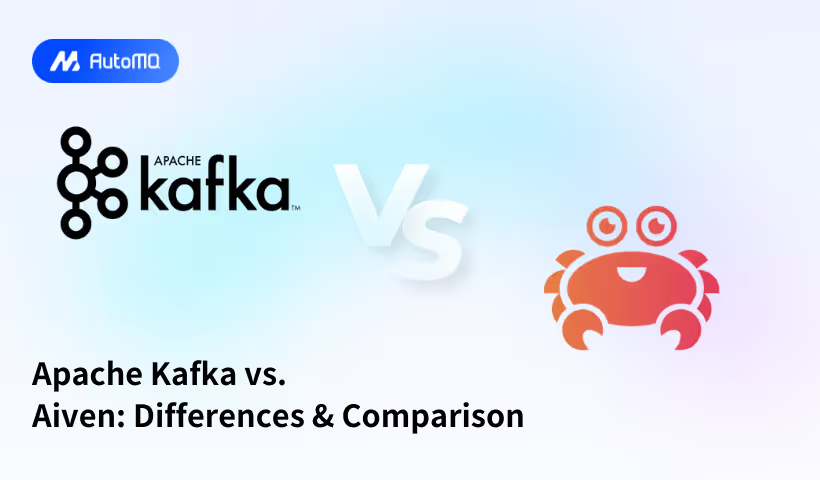Overview
Apache Kafka is a distributed event streaming platform that has become the cornerstone for real-time data streaming in modern architectures. Aiven for Apache Kafka, on the other hand, is a managed service that simplifies Kafka deployment and operations while offering additional features tailored for scalability, security, and ease of use. This blog provides an exhaustive comparison of Apache Kafka and Aiven for Apache Kafka, exploring their architectures, features, configurations, best practices, and use cases. By analyzing these platforms across multiple dimensions, this blog aims to guide decision-makers in selecting the most suitable solution for their specific requirements.
Introduction to Apache Kafka and Aiven for Apache Kafka
Overview of Apache Kafka
Apache Kafka is an open-source distributed event streaming platform designed to handle high-throughput, low-latency data streams. Initially developed by LinkedIn and later open-sourced through the Apache Software Foundation, Kafka is widely used for building real-time data pipelines and streaming applications. Its architecture is based on a distributed log model where data is stored in "topics," enabling producers to write messages and consumers to read them asynchronously.
Kafka's core components include brokers (servers that store and distribute messages), producers (applications that send messages to topics), consumers (applications that read messages from topics), and ZooKeeper (or KRaft in newer versions) for cluster coordination. The platform supports horizontal scaling, fault tolerance, and high availability through its partitioning and replication mechanisms.
Overview of Aiven for Apache Kafka
Aiven for Apache Kafka is a managed service that offers the full capabilities of Apache Kafka without the operational complexities involved in setting up and maintaining a self-managed cluster. Aiven provides automated provisioning, scaling, monitoring, and security features out-of-the-box. It supports multiple cloud providers (AWS, Google Cloud Platform, Microsoft Azure, DigitalOcean, etc.) and enables seamless integration with other open-source services like PostgreSQL, OpenSearch, Redis, and more.
Aiven's managed service is designed to cater to organizations that require robust data streaming capabilities but lack the resources or expertise to manage Kafka clusters independently. It offers features such as end-to-end encryption, compliance with security standards (e.g., GDPR, SOC 2), multi-cloud support, and 99.99% uptime SLAs[1][12][13].
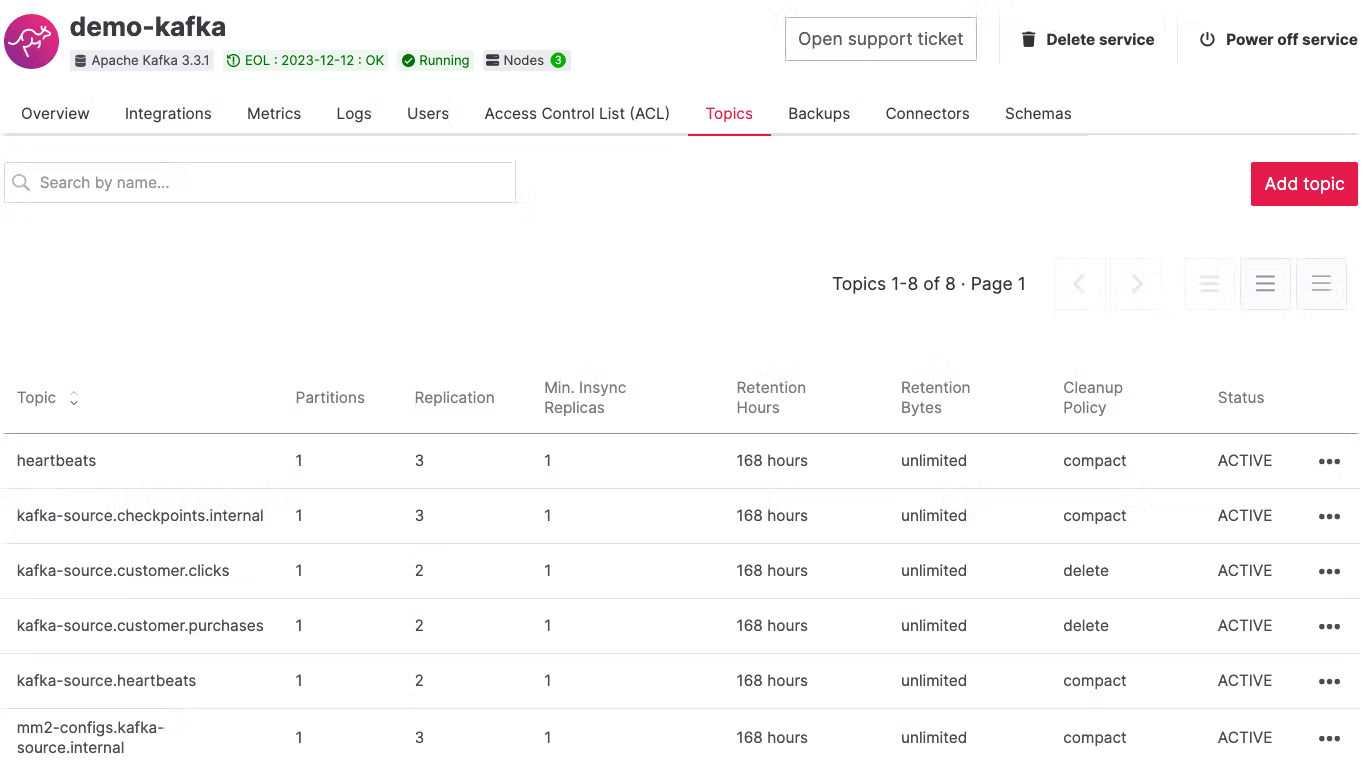
Architectural Differences
Core Architecture of Apache Kafka
Apache Kafka's architecture revolves around a distributed log model. Messages are organized into topics, which are further divided into partitions. Each partition is replicated across multiple brokers to ensure fault tolerance. Producers send messages to topics using partitioning strategies (e.g., round-robin or key-based), while consumers fetch messages either individually or as part of consumer groups.
Kafka relies on ZooKeeper or its successor KRaft (Kafka Raft) for metadata management and leader election. ZooKeeper ensures high availability by coordinating broker states and managing configurations[6][7].
Core Architecture of Aiven for Apache Kafka
Aiven retains the fundamental architecture of Apache Kafka but abstracts away operational complexities through automation. Unlike self-managed Kafka clusters that require manual setup of brokers, partitions, replication factors, and ZooKeeper nodes, Aiven automates these processes via predefined plans.
Aiven's architecture includes:
Dedicated Virtual Machines (VMs): Each cluster runs on isolated VMs to ensure security and performance.
Multi-Cloud Support: Clusters can be deployed across different cloud providers or regions.
Integrated Monitoring: Real-time dashboards provide insights into cluster health.
Automated Scaling: Both vertical (increasing node capacity) and horizontal (adding brokers) scaling are supported without downtime[11][12].
Configuration Management
Configuring Apache Kafka
Setting up an Apache Kafka cluster requires configuring brokers with parameters such as log.retention.ms (message retention period), num.partitions (default number of partitions per topic), replication.factor (number of replicas per partition), and more. Security settings like SASL/SSL authentication also need to be manually configured.
ZooKeeper or KRaft must be set up separately to manage metadata. This involves configuring quorum sizes ( zookeeper.quorum ) and ensuring high availability through redundant nodes17.
Configuring Aiven for Apache Kafka
Aiven simplifies configuration through its web console or API. Users can specify parameters like replication factors or partition counts directly during cluster creation. Security settings such as encryption protocols (e.g., TLS) are enabled by default.
Aiven also integrates with tools like Terraform for infrastructure-as-code deployments. This allows users to manage configurations programmatically while ensuring consistency across environments[5][12].
Security Features
Security in Apache Kafka
Apache Kafka supports several security mechanisms:
Authentication: SASL/SSL protocols are used for client-broker communication.
Authorization: ACLs (Access Control Lists) define permissions at the topic level.
Encryption: Data can be encrypted both at rest and in transit using SSL/TLS[2][17].
However, implementing these features requires significant manual effort, including generating certificates, configuring JAAS files, and setting up ACLs.
Security in Aiven for Apache Kafka
Aiven enhances security by providing end-to-end encryption out-of-the-box. Key features include:
Dedicated VMs: Ensures data isolation.
Compliance Standards: Adheres to ISO 27001, SOC 2, HIPAA, PCI-DSS.
Advanced Authentication: Supports SAML/Okta integration.
Monitoring & Auditing: Built-in tools track access logs and detect anomalies[12][17].
These features reduce the operational burden on users while ensuring robust security.
Performance Benchmarking
Performance Metrics for Apache Kafka
Apache Kafka's performance depends on factors like hardware resources (CPU/RAM/disk I/O), network bandwidth, replication factors, and partition counts. Benchmarks typically measure throughput (messages per second) and latency under various workloads.
For instance:
- A three-node cluster with 4 GB RAM per node can achieve up to 200K messages/second with a single partition per node[9].
Performance Metrics for Aiven for Apache Kafka
Aiven's managed service optimizes performance through intelligent resource allocation:
Vertical scaling increases node capacity without downtime.
Horizontal scaling adds brokers dynamically.
Benchmarks show that a five-node cluster can handle up to 535K messages/second under optimal conditions[9][11].
These results demonstrate that Aiven matches or exceeds self-managed Kafka performance while simplifying operations.
Cost Analysis
Cost of Self-Managing Apache Kafka
Self-managing a Kafka cluster involves costs related to:
Hardware procurement or cloud instances.
Operational overheads (e.g., monitoring tools like Prometheus/Grafana).
Personnel expertise required for maintenance.
These costs can vary significantly based on cluster size and workload requirements[1][8].
Cost of Using Aiven for Apache Kafka
Aiven offers transparent pricing plans:
Startup Plan: $290/month for small-scale deployments.
Business Plan: $725/month with additional features like built-in connectors.
Premium Plan: $2,800/month for large-scale clusters with advanced capabilities[10].
While managed services may appear costlier upfront compared to self-managed setups, they often result in lower total cost of ownership by reducing operational burdens[8][10].
Use Cases & Best Practices
Use Cases for Apache Kafka
Real-time analytics pipelines.
Event-driven microservices architectures.
Log aggregation systems.
Best practices include:
Setting appropriate replication factors based on criticality.
Avoiding over-partitioning to minimize overheads.
Use Cases for Aiven for Apache Kafka
Organizations lacking in-house expertise but requiring robust streaming capabilities.
Multi-cloud or hybrid cloud deployments.
Scenarios demanding stringent SLAs (e.g., financial services).
Best practices include:
Leveraging Terraform scripts for consistent deployments.
Utilizing built-in integration options with other Aiven services like PostgreSQL or OpenSearch[12][13].
Conclusion
Apache Kafka remains a powerful choice for organizations seeking complete control over their event streaming infrastructure. However, this control comes at the cost of operational complexity and resource requirements.
Aiven for Apache Kafka bridges this gap by offering a fully managed solution that retains the core benefits of Apache Kafka while simplifying deployment, scaling, security management, and monitoring. Its multi-cloud support further enhances flexibility for modern enterprises.
Ultimately, the choice between these platforms depends on organizational priorities—whether they value control over infrastructure or prefer operational simplicity with guaranteed SLAs.
If you find this content helpful, you might also be interested in our product AutoMQ. AutoMQ is a cloud-native alternative to Kafka by decoupling durability to S3 and EBS. 10x Cost-Effective. No Cross-AZ Traffic Cost. Autoscale in seconds. Single-digit ms latency. AutoMQ now is source code available on github. Big Companies Worldwide are Using AutoMQ. Check the following case studies to learn more:
Grab: Driving Efficiency with AutoMQ in DataStreaming Platform
Palmpay Uses AutoMQ to Replace Kafka, Optimizing Costs by 50%+
How Asia’s Quora Zhihu uses AutoMQ to reduce Kafka cost and maintenance complexity
XPENG Motors Reduces Costs by 50%+ by Replacing Kafka with AutoMQ
Asia's GOAT, Poizon uses AutoMQ Kafka to build observability platform for massive data(30 GB/s)
AutoMQ Helps CaoCao Mobility Address Kafka Scalability During Holidays
JD.comx AutoMQ x CubeFS: A Cost-Effective Journey at Trillion-Scale Kafka Messaging
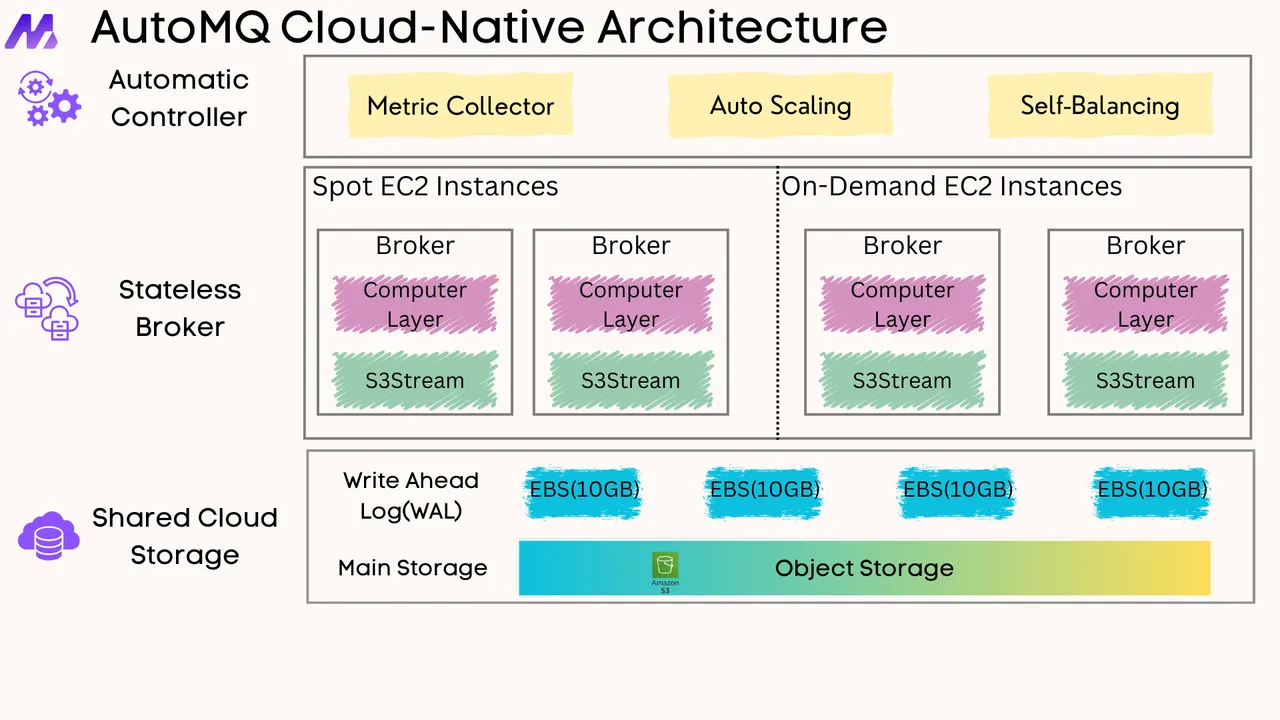





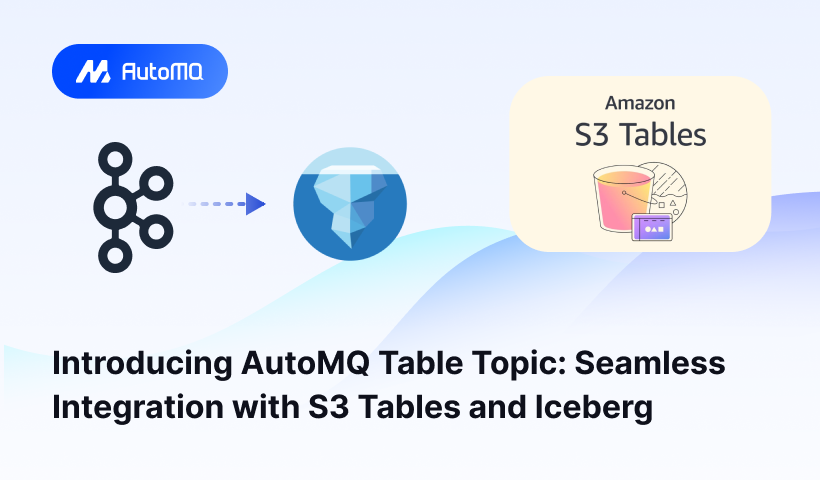
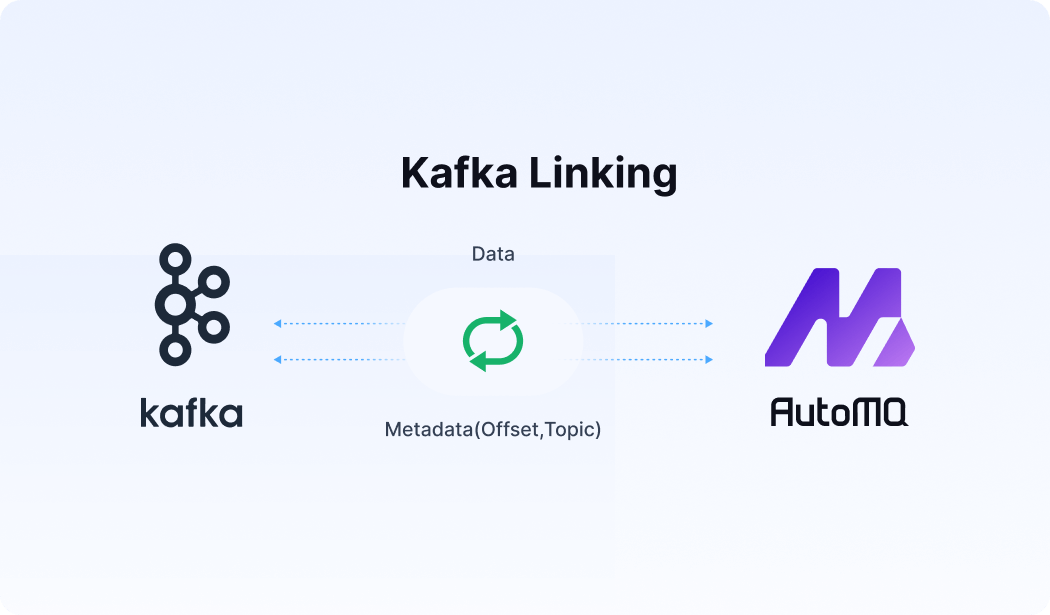




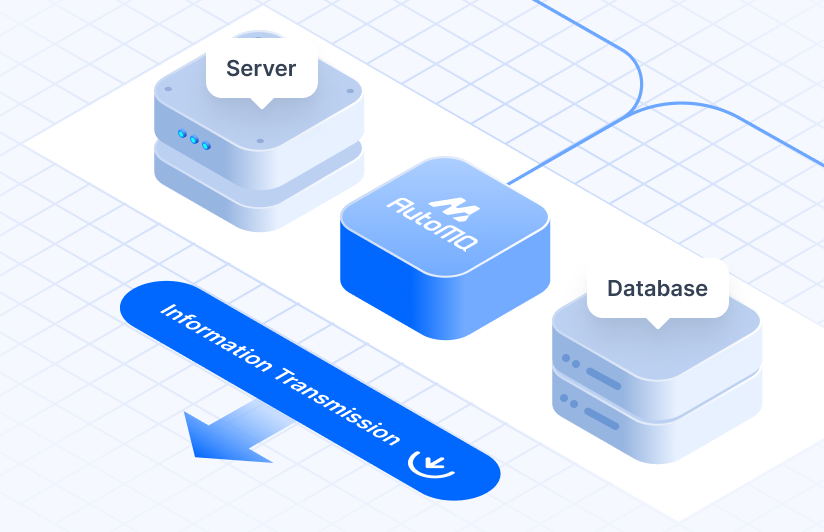
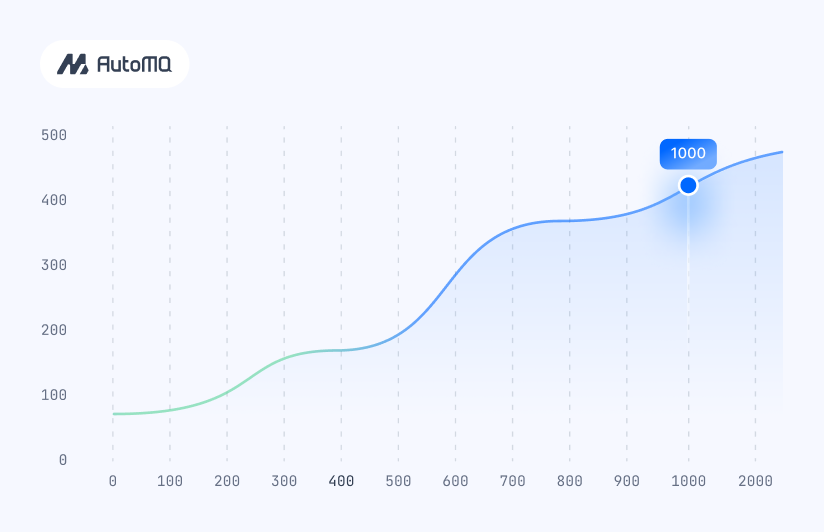


.png)
